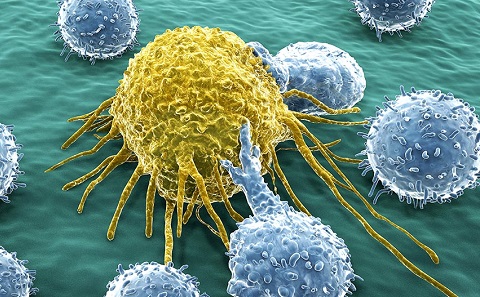Lymph nodes could be a prime target for treating leukaemia

Research from the University of Southampton could pave the way for new treatments for chronic lymphocytic leukaemia (CLL), giving fresh hope for patients.
CLL is the most common type of adult leukaemia and patients who relapse on current therapies have a poor survival outlook. In patients with CLL, the lymph nodes are known to be the critical tissue site for tumour cell survival and growth. Now a new study published in the journal Leukaemia, has shown that signals in the lymph nodes boosts CLL cells’ defences, protecting them from being destroyed by the body’s natural killer (NK) immune cells.
This new information opens the door to new and improved therapies which could eradicate tumour cells in patients with B cell malignancies within this critical tissue site.
In the same study, a drug called selinexor was shown to boost the ability of NK cells to kill CLL cells by overcoming an important immune checkpoint receptor called NKG2A. Moreover, the researchers found that when selinexor is in combination with other approved treatments like acalabrutinib, rituximab, and obinutuzumab, it becomes even more potent against CLL.

Dr Matthew Blunt, Senior Research Fellow in the Faculty of Medicine, who led the study, said: “Our lymph nodes usually support our immune system in fighting infections, however in CLL they actually help cancer cells to grow and survive. By working with colleagues at Karyopharm Therapeutics we have been able to identify a clinically relevant strategy to overcome this resistance mechanism, with potential to improve immunotherapy for patients with leukaemia”.
The Southampton team now aims to evaluate these findings in a clinical trial and is also expanding their NK cell research programme to other types of blood cancers.
In recognition of Dr Blunt’s expertise and contribution to haematology research, he has been named within the Emerging Leaders in Leukaemia collection by Nature, one of only three researchers selected world-wide. The Emerging Leaders collection recognizes new talent in the haematology field and acknowledges ground-breaking researchers who are in the early stages of their scientific careers, serving as a platform to showcase their work.